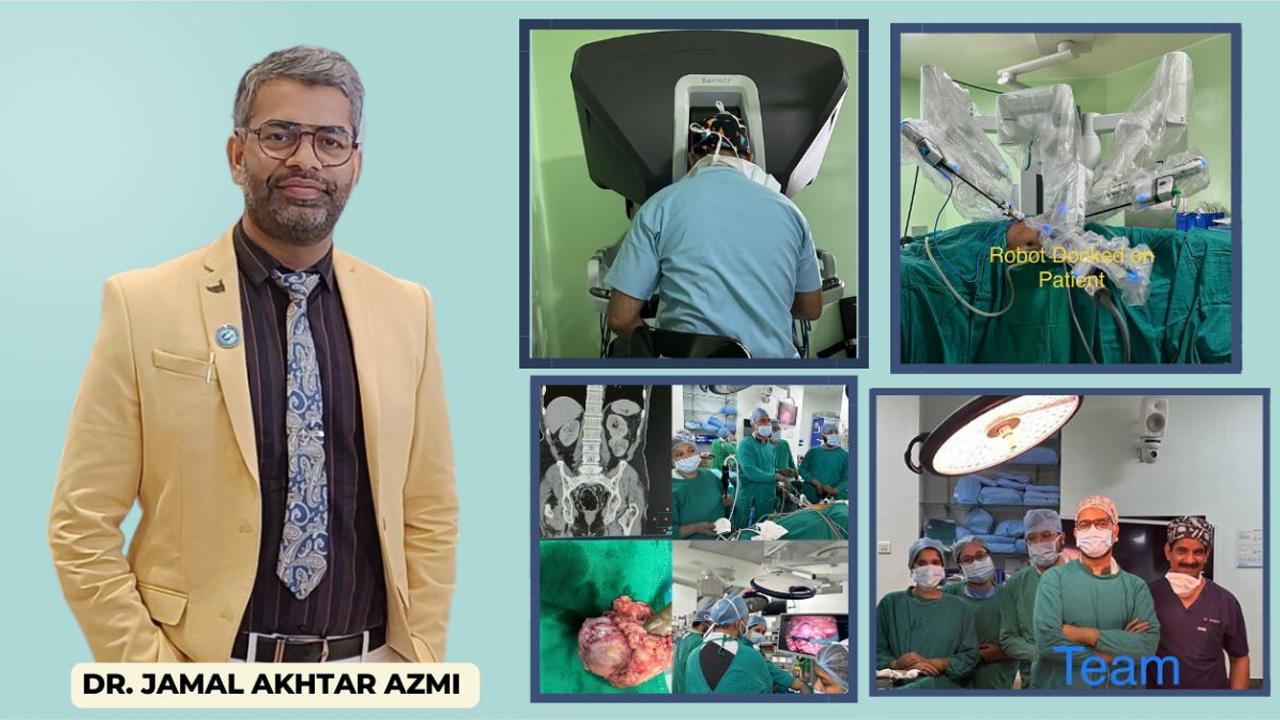- Mon, 28 July, 2025
EPAPER
-
EPAPER
Updated: August 12, 2023, 08:41 PM IST | BrandMedia | brandmedia@mid-day.com | Mumbai
Read this story on Mid-day.Com
The most common Renal tumor is renal cell carcinoma. Its subtypes are clear cells (80 percent) of RCC, Papillary, and Chromophobe.

Kidney Cancer is the third most common genitourinary cancer. Its incidence and prevalence are increasing. Most cancers are diagnosed incidentally because of the frequent use of imaging techniques. Kidney cancers are most common in males.
Risk Factors: Factors that can increase the risk of kidney cancer include:
The most common Renal tumor is renal cell carcinoma. Its subtypes are clear cells (80%) of RCC, Papillary, and Chromophobe. The traditional method of treatment for kidney cancer was radical nephrectomy (removing whole Kidney). Removal of whole kidneys leads to an increased incidence of chronic kidney disease.
Chronic Kidney Disease (CKD) leads to increased overall Morbidity and Mortality. To avoid the complication (Risk) of CKD condition, Partial (Half) nephrectomy (Removal of tumor and a small amount of normal Kidney) has become the standard of treatment. In this procedure, the kidney is preserved. Nowadays, the majority of cancers diagnosed on sonography / CT in going (T1 &T2). Kidney-preserving surgery can be done.
Symptoms of Kidney Cancer: Kidney cancers usually don’t have signs or symptoms in their early stage. Don’t neglect the following symptoms: Blood in urine, which may appear pink, red, or cola-coloured, Pain in your back or side that doesn’t go away, loss of appetite, unexplained weight loss, tiredness, and fever.
Investigation for kidney cancer treatment: Routine blood investigations, contrast-enhanced CT Scan with renal angiography to look for the number of kidney blood vessels. Routinely we don’t do pet scans.
Robotic Surgery for Nephron Sparing:
Robotic surgery is a type of minimally invasive surgery that can be used for kidney cancer. In contrast, to open surgeries, minimally invasive surgeries only use several small incisions in your abdomen instead of one large one.
Robotic Surgery uses a laparoscope and other small surgical instruments. A Laparoscope is a tube-shaped instrument with a camera and light on the end that allows your surgeon to see into your body as they do the surgery.
In Robotic Surgery, the surgeon sits on the Console and operates via Robotic arms as shown in the above picture.
Advantages of Robotic Surgery:
Robotic Surgery is cosmetically much better, with reduced pain, decreased blood loss, less hospital stay, 3D vision, and 7 degrees of freedom which allows surgeons for better control during suturing of the kidney, with robotics more larger and complex tumors can be removed.
Nephron-sparing surgery is done depending upon the tumor category (low risk and intermediate risk) large (big) and infiltrate tumors are not possible to remove, in this kidney removal is required.
How to prevent Kidney Cancer:
Taking steps to improve your health may help reduce your risk of kidney cancer. To reduce your risk, try to:
Dr. Jamal Azmi - MBBS, MS, MCH (Urology) – Consultant Urologist & Uro-Oncosurgeon – Saifee Hospital, Breachcandy Hospital, Wokhardt Hospital, Mumbai
Dr. Jamal Azmi is a very renowned urology doctor in Mumbai, who specializes in Uro-Oncology, Andrology, Reconstructive Urology and Robotic Surgery such as Robotic Nephrectomy & Prostatectomy, Adrenal Surgeries, Supine PCNL, Laser Stone Treatment like Bilateral RIRS, ECIRS, Reconstructive Surgeries like Urethroplasty, Vesicovaginal Fistula Repair, Ureteric Reimplantation and Penile Fracture Repair.